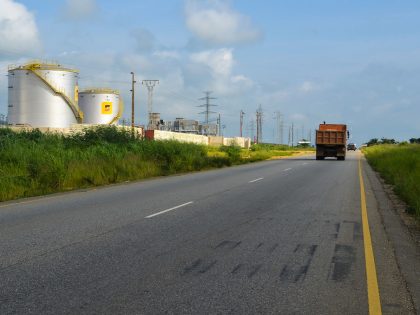The venality of the Kenyan MP
In Kenya, elected office does not represent a duty to represent ordinary citizens, but an opportunity for personal enrichment.

Image credit Jorge Láscar via Flickr CC BY 2.0
In July, Silvanus Osoro, the National Assembly Majority Whip in the Kenyan Parliament, made a startling remark: unguarded, he revealed to the press that he had bribed the opposition coalition MPs to stay away from voting for the crucial Financial Bill (2023) that the Kenya Kwanza coalition government wanted passed without fail.
The bill, which generated more heat than light, was first published on April 28, 2023. On June 22, its third reading, Parliament passed the bill for presidential assent.
It’s important to note that on its second reading, on June 14, 28 Orange Democratic Movement (ODM) Party members, the biggest party in the Azimio opposition coalition, voted for the bill, while 24 of its parliamentarians absconded, going against the wishes of coalition boss Raila Odinga. The absentee MPs played by the time-tested principle of plausible deniability.
Osoro has since recanted what he said, employing the vintage nonplussed, Kenyan politician performance. Representing a rural constituency in western Kenya, the South Mugirango MP said a few days later, without blinking, that the media (in its typical style) had (of course) misquoted him. He “clarified” that what he did with the opposition MPs was enjoy some pumpkin soup at the Parliament cafeteria. “The media interpreted buying soup to mean I’d given them money,” said the MP.”
This MP’s ostensive malapropism is anything but novel or surprising: the fact that Kenyan MPs are always on the take has been an open secret for the longest time. The MP’s “slip of the tongue” was a confirmation of the wheeler-dealer shenanigans that go on in the House. For example, in 2018, the press reported how some MPs were unashamedly busted as they were being bribed in the toilets. For as little as Ksh10,000 (100 USD), these parliamentarians were on the take to shoot down a controversial sugar report.
In 2007, months before the December general elections, a popular central Kenya MP, with yet-to-declare presidential ambitions, brought together a motley group of political aspirants for a masterclass “on why it’s important you become MPs.” “Politics is the best business in Kenya, and the best-paying job, outside of running a morgue and a church,” lectured the MP to his attentive class, which included several women aspirants:
It is the only job that you’re paid as long as you clock in the time. Then you can go your way—without being remonstrated (by the boss) or having to feel remorseful, to pursue your other more important money-making opportunities and ventures. It is a job that pays you just to be present.
It is also the only job that allows you to dictate how much you’re going to be paid. In Kenya, MPs have now made it standard practice to demand a salary increment every time they are elected into parliament; a disease that their colleagues in the County Assembly (MCA’s) have vigorously adopted.
Budding politicians have not only realized that big money is to be made in parliament, but that politics played at the county assembly level is equally as lucrative.
An aspiring MCA told me as much in the lead-up to the 2022 elections. Young, suave, urbane, and a corporate buff with a college degree, I asked him why he wanted to trade his well-heeled job to enter into the murky and risky business that is Kenyan politics.
“What about service to the people?” I asked him. “Service to the people?” he mused aloud. “You think politicians spend huge amounts of money to enter parliament or assemblies because they’re altruistic?” (remember, Kenya’s elections are the most expensive in the world, for both aspirants and the electoral body.) He continued:
You think I’ve stashed KSh40 million (272,000 USD) because I want to serve the people? I’m betting on a business that can go either way. It is a high stakes game. If it goes my way I win, if it doesn’t I lick my wounds and hope I’ll not be crushed by the defeat.
It is not only in Kenya that MPs exhibit greed or a knack for self-aggrandizement: In neighboring Uganda, a country smaller in size and population, but that has 557 constituencies (208 more than Kenya), MPs are now among the highest paid in Africa. They earn more money in a month than the MPs from countries that fund Uganda’s national treasury (in 2019, the Ugandan Supreme Court ruled that MPs unilateral pay hikes were unconstitutional, to much uproar).
In the days when Daniel Arap Moi ruled Kenya with an iron fist, even as he transitioned, grudgingly, into the heady days of multiparty politics in the 1990s, he kept MPs on a tight leash: first by ensuring they were poorly remunerated, second by ensuring they danced to his tune. And then, at some point, he would invite an MP he wanted to deflate to State House. Moi would begin by praising him to the high heavens and “confiding” in him, making him believe he was sharing sacred secrets and then slowly puncturing the very same balloon he helped blow up in the air. How would he do it? After he had finished with the said MP, he would bid him goodbye, but not before asking him to pass through room X on his way out. In this room was a stash of freshly minted Kenya currency notes, and Moi and his cohorts would watch the MP’s reaction through a hidden camera. “My God,” wailed one former opposition MP as he grabbed the money, stashing vast sums in his blazer pockets, groin, and socks; “now why didn’t I bring along a carrier bag?”
Suffice it to say, nothing unites the Kenyan MPs more than when they are agitating for a pay hike when they are bribing each other, and when they are taking the voter for a long, long hike.



